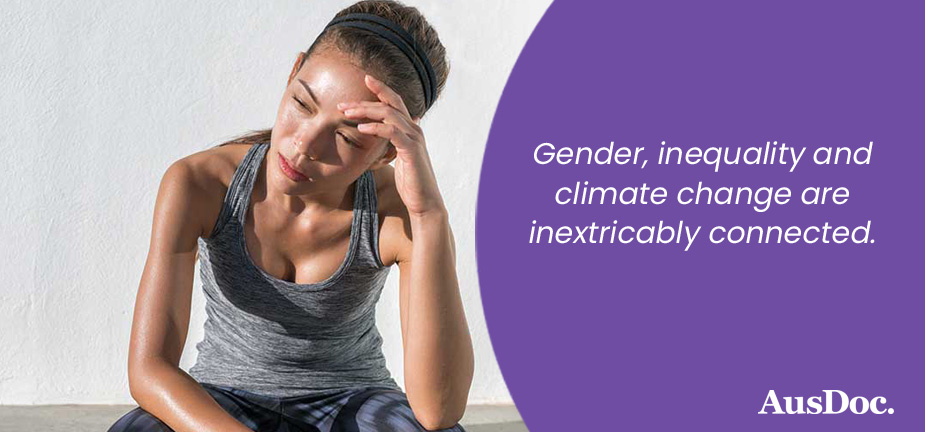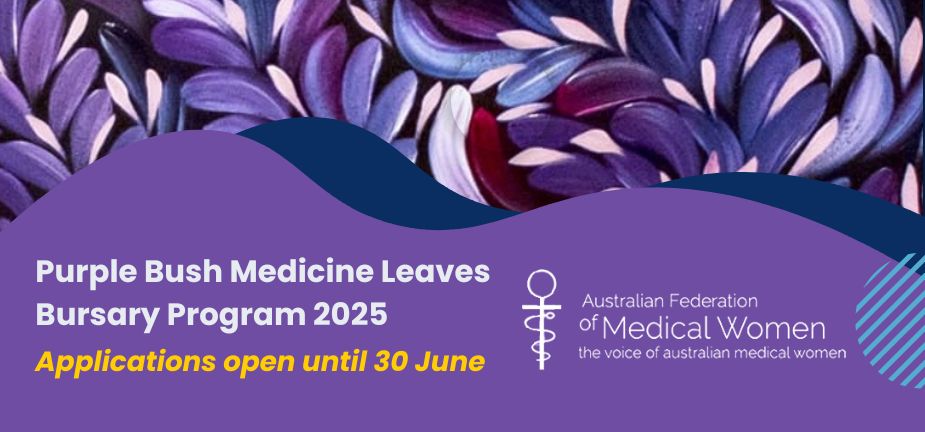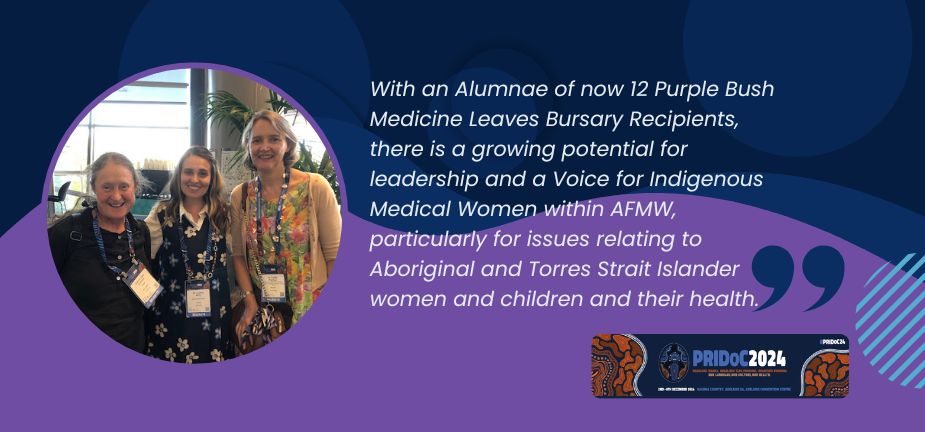A/Professor Magdalena Simonis Chair of AFMW Climate Health Action Group, along with Dr Kate Wylie, CEO of Doctors For the Environment Australia have a statement to make this International Women’s Day (IWD).
It’s a call to include women in disaster management planning and leadership. Women bear the brunt of climate related disasters, and this article draws attention to this.
EXTRACT
Gender, inequality and climate change are inextricably connected.
We see this play out with women being more vulnerable to climate health impacts such as displacement from natural disasters, food and water insecurity, personal violence and other health outcomes.
In keeping with the United Nations’ International Women’s Day, we need to ‘count women in, invest in women and accelerate progress’, recognising that supporting women’s empowerment means supporting climate action.
Some of this will be all too familiar.
Globally, women have less access to natural resources despite bearing a disproportionate responsibility for securing food, water and fuel.
Women in low- and lower-middle income countries primarily work in agriculture, and so during periods of drought and erratic rainfall, they work harder to secure income and resources for their families.
But while Australia as a wealthy nation can better respond to climate impacts, we are not immune to the impact. In 2020, we were listed among the top 10 most economically affected nations from climate-related disasters.
This is important because climate change is a ‘threat amplifier’ where existing hardships — be it financial, health, relationship, employment, structural or socially determined — are made worse.
Take heat as an example.
Heatwaves are well recognised to have multiple detrimental health impacts, including an increased risk of myocardial infarction, cerebrovascular accidents and renal failure; however, heat also has veiled impacts.
A recent study showed that violence increases with warmer weather, and that the effect of heat was greater on domestic violence than other types of violent crime.
The authors hypothesised that the uncomfortable effects of hot weather — sweating, dehydration, poor sleep — and behaviours such as an increased consumption of alcohol on a hot day, contribute to a rise in feelings of aggression that culminates in violence towards women mainly.
Living in hot, poorly constructed houses in hot areas (due to the urban heat island effect), that may lack air-conditioning or is unaffordable to run on hot days, may be a big contributor to violence.
Another example of climate change impacts on women can bee seen in the devastation caused by the northern rivers flood in 2022.
Again, one of the lesser known consequences from the flood were that women were subjected to violence and sexual assault, resulting in unplanned pregnancies, when housed in the safety shelters provided.
Telecommunications failures, housing shortages, lack of staffing and being stranded for long periods due to the extent of the floods, trapped women and exposed them to greater risks of physical and sexual abuse.
We as doctors have a role to play here.
We can recognise and respond to intimate partner violence and sexual abuse for our patients, noting the increased risk for women and the amplifying effect of climate-induced heatwaves and catastrophic flooding.
We can acknowledge the increased responsibility of caring for loved ones that women tend to hold, and support our patients in this area.
We must also be mindful of the increased vulnerabilities for women in multicultural and First Nations communities.
We can advocate for women’s rights to education and family planning, recognising that lack of education and reproductive rights perpetuates gender inequity.
For many of us, the simple act of providing contraception is a way of contributing to women’s rights.
International Women’s Day, which started in 1975, exists to focus our attention on continued gender inequity.
By addressing women’s experiences of a lifetime of gender disparities, and at the same time empowering women to speak out and to take action, we will enable better climate solutions that protect all of us no matter our gender.
This will mean healthier communities and ultimately a healthier planet.
Associate Professor Magdalena Simonis is a GP, chair of the Australian Federation of Medical Women’s Climate Health Action Group (CHAG), and a member of Doctors for the Environment Australia.
Dr Kate Wylie is a GP and the executive director of Doctors for the Environment Australia.
More information:
- International Women’s Day
- Australian Federation of Medical Women
- Doctors for the Environment Australia


Original article and source photo: https://www.ausdoc.com.au/news/climate-change-is-a-threat-amplifier-wreaking-havoc-on-womens-health/
The Australian Federation of Medical Women (AFMW) is a not for profit, politically neutral, non sectarian, non government organisation that seeks to improve the health of all Australians, especially the health of women and children.
Events and Updates coordination by AFMW, on behalf of the Australian Federation of Medical Women (AFMW), its affiliated Australian state and territory partners and international networks and supporters. If you have an update or event you would like to share with us for Australian medical women, please contact us with details. Thank you.










